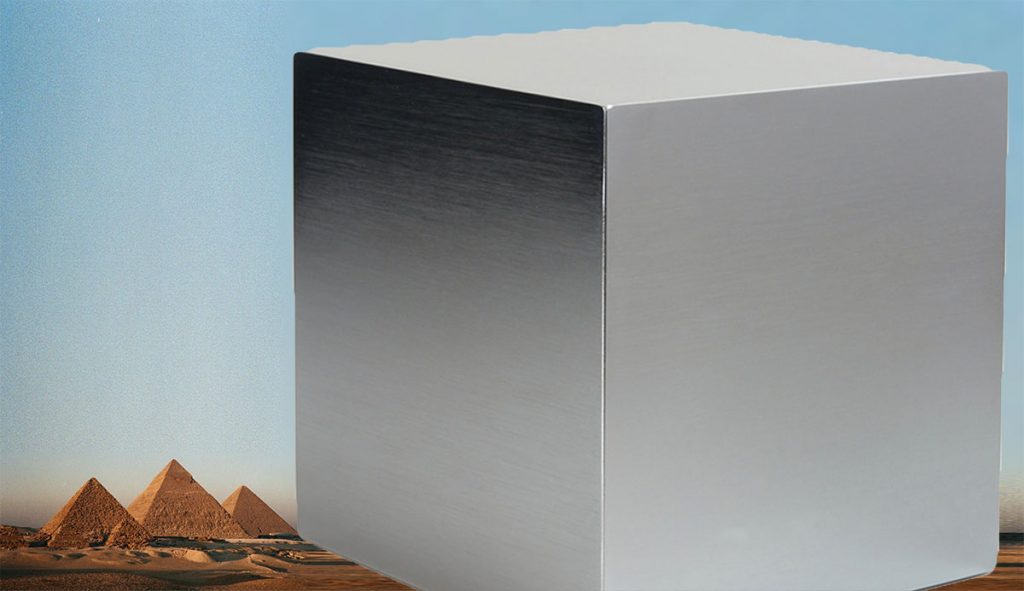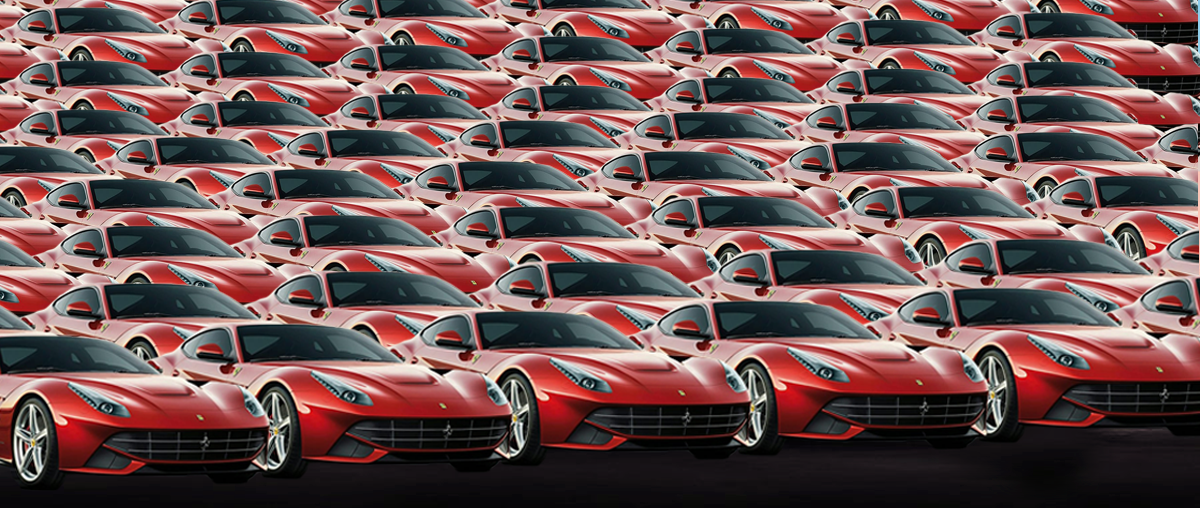The current top of the range model Ferrari is the F12 Berlinetta – a 12-cylinder beast which will get you up to 200kmh in 8.5 seconds (perfect for those last minute shopping trips), and which will set you back around $320,000 or so.
 Personally I would have no interest in owning such a car, but since Ferrari is the de facto status symbol and icon of material success, it’s perfect for this article. (But please feel free to replace Ferrari with the material wealth icon of your choice)
Personally I would have no interest in owning such a car, but since Ferrari is the de facto status symbol and icon of material success, it’s perfect for this article. (But please feel free to replace Ferrari with the material wealth icon of your choice)
Now I’d like you to imagine a world where everyone owns one of these cars – where everyone alive has reached the pinnacle of their career success and has treated themselves to one of these runabouts for their birthday.
So let’s do a little maths?
The curb weight of this car is 1525kg. Since the car has a mostly aluminium chassis, let’s assume the composition to be 1000kg steel and 300kg aluminium (much lighter than steel), and the other 225kg rubber, upholstery, plastic, copper, etc.
So, in order to meet the demand of our 7.2 billion nouveau riche, we need to find 7.2 billion metric tonnes of steel (1000kg = 1 tonne). To visualise this, a ton of steel has an approximate volume of 0.13m³, so 7.2 billion tonnes of it would come to a total of 936,000,000 cubic metres, or, one giant cube of steel just under a kilometre on a side. Something like this:

Of course, the gargantuan mass you see here doesn’t even begin to address the iron ore extraction, processing and energy required to produce this much steel. Possibly even more so with the 2.1 billion tonnes of aluminium required, which is extracted from approximately four times its own volume in jungle topsoil, before being electrolyzed into existence using vast amounts of electrical energy.
So, it’s fair to say – apart from the now meagre-looking price tag of $320,000 – that the mineral and energy cost alone of producing one of these cars for everyone on the planet would be absolutely insurmountable and devastating to the environment.
So, what’s the point of all this?
Well, the point is that, figuratively, this is in fact the true, current aspiration of our society. Whether it’s a Ferrari or something else, this level of unnecessary material ownership is something most people believe is perfectly reasonable to aspire to. Yet, if it actually happened, it would clearly be an environmental catastrophe.
Imagine if you could somehow magically offer every person alive today a brand new Ferrari (or equivalent icon) for free? How many people would say no?
Right there is your problem. We are totally absorbed in self-interest. Most people don’t understand – or care about – the consequences of their purchases. Why? Because those reservations have been advertised out of us. We trust agencies to look after these details on our behalf without question. So if you believe it’s cool to own a Ferrari, and you think people will admire you for it, and you have the money to buy one, then the decision is made.
Now here’s the rub. I’m not just talking about Ferraris here. This applies to everything. Our TVs, our phones, our homes, our furniture, our clothes, our food, etc. Mostly, we don’t understand or care about where any of it comes from, or what physical or human costs were expended to create them. If we want it, and we can afford it, then that’s enough. There’s nothing else to think about.
There is a plague happening on Earth – and it’s us.
Our fixation on trade and monetary value distracts and detaches us from the real physical costs of our purchases. Convenience trumps conservation. Idolatry trumps reasoned consideration. 7.2 billion people working in self interest is a disaster that’s already in full progress. There is a plague happening on Earth – and it’s us. We urgently need to move away from self interest back to group interest before it destroys us and everything we care about.
In economics, there is a well-known theory called the Tragedy of the Commons, which is often used to bash communism, or deride movements advocating a money-free world like The Free World Charter, The Zeitgeist Movement, The Venus Project and others. The theory posits that when you have commonly-shared resources or lands, invariably one or more individuals will over-use or take more than their fair share to the detriment of others, owing to innate overriding self-interest.
There are three reasons why this argument is spurious:
- Any society that guarantees basic human necessities as a fundamental ‘right’ has pretty much bypassed the mechanism that triggers this irresponsible self interest. Hoarding is a survival mechanism, but if your survival is never threatened, hoarding has no purpose.
- An Open Access Economy society is not just a means of economy. It’s an enlightened, educated society that has been well grounded in the basics of how community and nature operate, and how self-interest at the expense of others is physically and socially detrimental in the long term.
- While the ‘tragedy of the commons’ might occur in some places at some times with some people (because life isn’t perfect), in an enlightened and nurtured population, this would be the exception rather than the rule, and even in its worst case would be infinitely less dangerous than a society where self-interest and competition are the accepted and educated norm.
Bottom line: The tragedy of capitalism – 7.2 billion souls hell-bent on amassing wealth for fear of scarcity – is not just a far greater danger than the tragedy of the commons, but it’s happening right now, devastating our planet, life and relationships right in front of our eyes. While we ourselves are party to this destruction, it’s also a system that is being championed and maintained by the most detached and least socially-invested people among us – the wealthy elite.
Most likely the wealthy elite will continue to promote this system and won’t understand the damage until it is too late. It will only take a collective action on the part of us, the consumers, to stop this machine that is chomping our planet. In short, we all need to buy less and share more. It’s not a lifestyle choice, it is, ultimately, a life choice.






You’ve done it again Colin. Exceptional writing here, exposing a simple concept, very clearly. This will be NEW to many people!
Watching, and contributing, to over-consumption sort of ruined me.
I am an artist but I pretty much stopped because people really don’t need my stuff- or any stuff.
And I’m a functional blacksmith, but my life’s money really came from folks who just had to have something, and I got sickened by them. Maybe not so weird??
But that was a great expose, Colin. Thank you
it would seem like a library type system would make more sense. something like zipcar. but thanks to an advertising centric culture humans in this reality have this sense of entitlement where they feel like they need own stuff instead of timesharing.
Well said, Colin!